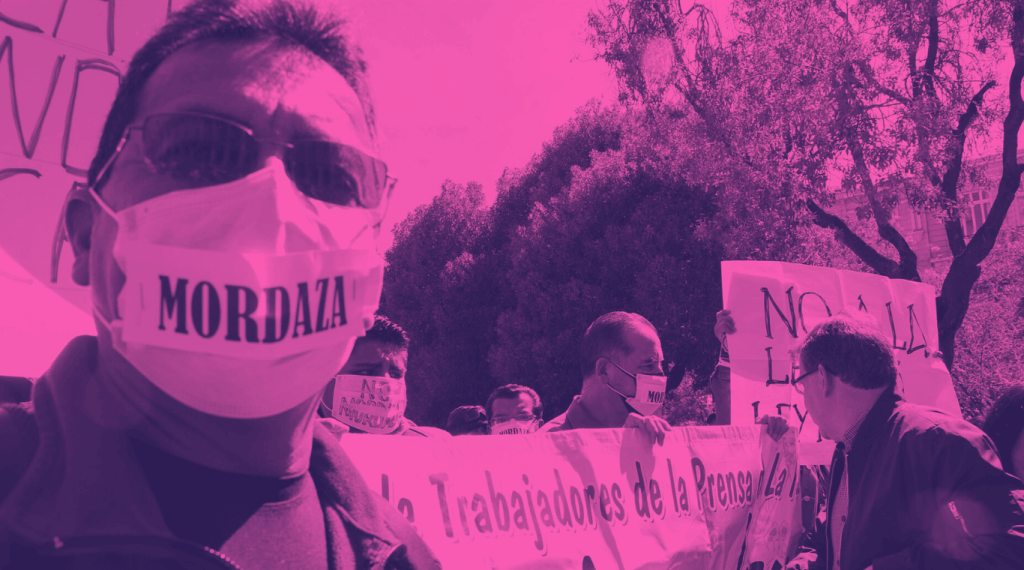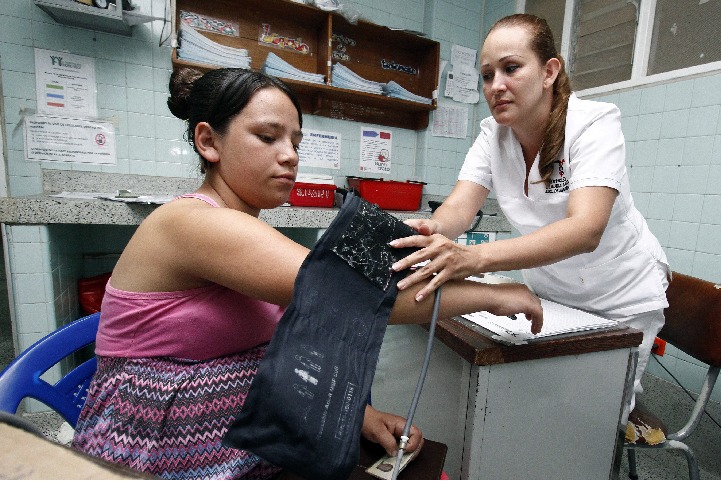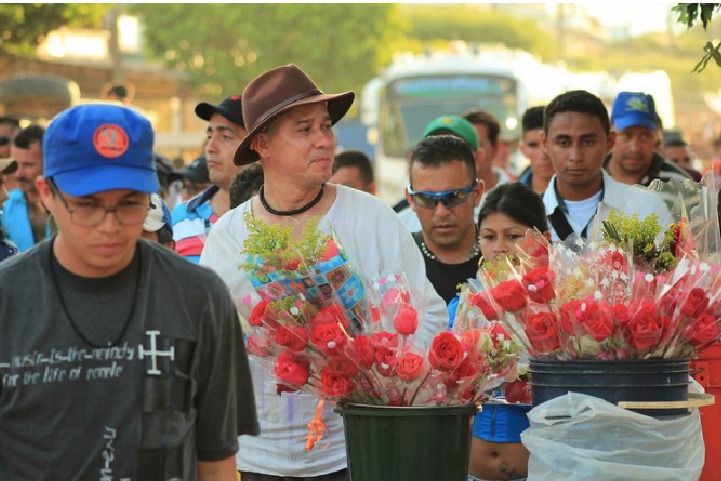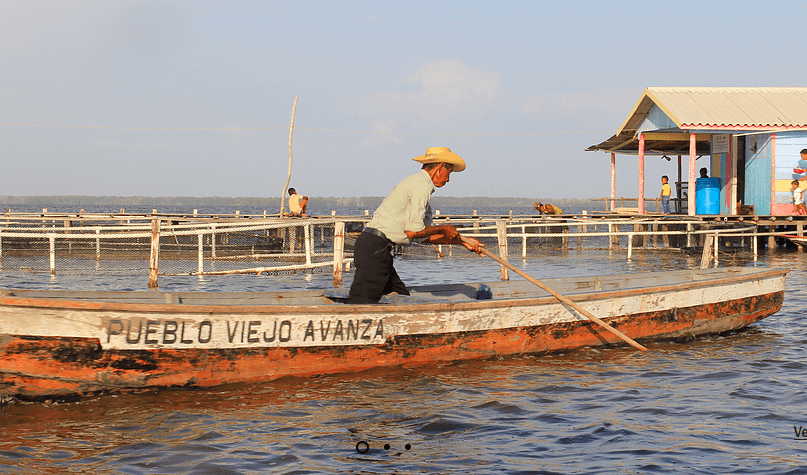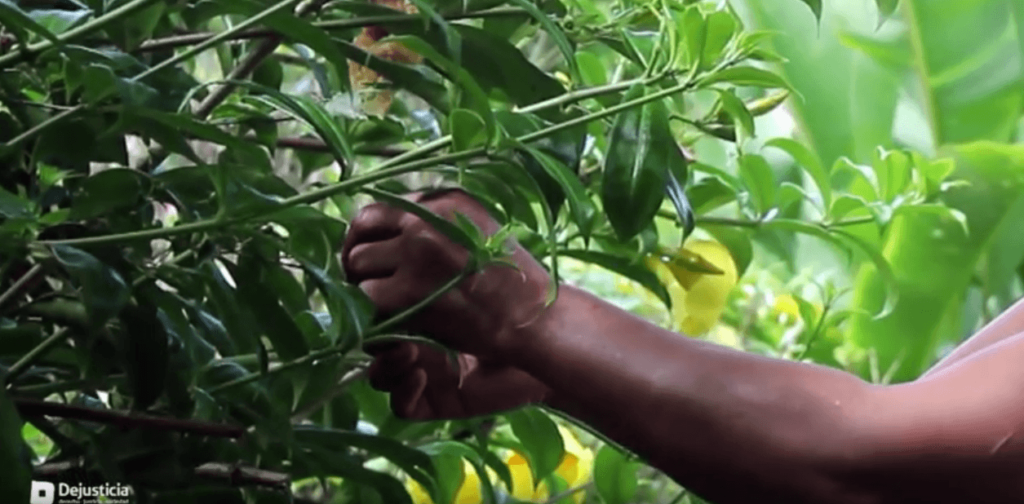News
LATEST IN COLOMBIA

News
Reparation in the voice of Women from the Regions
By Dejusticia |
The document is a joint construction that reflects the articulation of several organizations working directly with women victims of violence in the context of armed conflict in Colombia. In particular, it collects the work results carried out in the regions by: the Popular Women’s Organization (OFP), the Colombian Women’s Initiative Partnership for Peace (IMP), the Corporation Sisma Women, and Narrating for Living, as operator of the Network of Women in the Montes de María. Dejusticia made the drafting of the document from the inputs provided by these organizations.
Its aim is to contribute to the reparation debate in Colombia and, in particular, to emphasize the importance of designing, implementing, and evaluating public policy in the subject with a gender emphasis. This is, recognizing that in the armed conflict there have been forms of violence directed against women and the need to satisfy women’s rights.
Transitional justice from below and with a gender perspective
By |
The document aims to contribute to the debate on how to face the atrocities committed in the context of armed conflict in Colombia. In order to do this, it presents a theoretical proposal by which it aspires to enrich the dominant approach in the field of transitional justice through: i) the inclusion of perspectives sensitive to the differential effects of violence in the lives of victims, including gender, and ii) a better articulation between the processes from above and the realities and local initiatives.
Interview to César Rodríguez Garavito in “Ámbito Jurídico”
By Dejusticia |
For the first time in the history of the Law & Society Association, its board will consist of a Latin American teacher: the Colombian lawyer César Augusto Rodríguez Garavito, elected for the period 2010-2012.
At least honest people
By Mauricio García Villegas |
WHAT IS MOST IMPORTANT, having good laws or having good rulers? Greeks discussed this 25 centuries ago.
From buses to banks: who controls private power?
By César Rodríguez Garavito |
FOUR DAYS LOST BY A STRIKE, multiplied by millions of people. That’s what Bogotá just experienced, a city besieged not by old pirates but by transport buccaneers.
Moving on
By Mauricio García Villegas |
NOW that the judicial decision on the referendum has been taken, after many months of uncertainty, it is natural that public opinion, especially Uribe’s followers, wants to forget the recent past to concentrate on the presidential campaign with the obvious frenzy a three month electoral debate produces.
I don’t care if they call me a dictator.
By Dejusticia |
During his six years in office, Bukele has consolidated his power, paving the way to become the dictator he appears to be announcing himself as.
NGOs at risk of global extinction
By Dejusticia |
How can non-governmental organizations transform themselves? What were they like when they did not depend on international funding?
Colombia: going back to the original balance of justice
By Paola Molano Ayala |
There is a crucial aspect of Colombia’s transitional justice model that is worrying: the current inability of the Special Jurisdiction for Peace (JEP) to offer legal security to those who participated in the conflict, including in human rights violations, and have not been identified as among the most responsible. And making sure they also contribute to the satisfaction of the rights of the victims. The JEP must avoid keep moving towards maximalist approaches and go back to the balance in the Peace Agreement.
Elementa DD.HH. y Dejusticia presentamos un amicus en el proceso que adelanta el Asocazul y Cajar por afectaciones derivadas de aspersiones con glifosato
By Dejusticia |
El glifosato causó daños irreversibles a los campesinos del sur de Bolívar y el Estado debe repararlos. Así lo argumentamos en una intervención ante el Consejo de Estado.
Colombia must obtain resources to guarantee the right to health of Venezuelan migrants: Constitutional Court
By Santiago Ardila Sierra |
The high court protected the right to health of two undocumented Venezuelans and requested the government to advance as “expeditiously and effectively as possible” towards the full realization of migrants’ right to health, regardless of their immigration status. Dejusticia intervened in the case.
Dejusticia intervenes in defense of Venezuelan migrants’ right to health
By Dejusticia |
The Constitutional Court invited Dejusticia to present their legal opinion on two cases concerning the right to health of people coming from Venezuela.
The long wait of the JEP ahead of the decisions of the Constitutional Court and Congress
By Dejusticia |
In the last six months civil society organizations, such as Dejusticia, have called on both institutions to give free rein to the norms that consolidate the Special Jurisdiction for Peace.
Case of indigenous people of Bojayá who could not vote in the plebiscite is about to reach the Court
By Mauricio Albarracín |
Through a tutela, a group of Emberá claimed their rights to political participation and equality, because their economic situation and how far they live made it impossible for them to move to endorse the Peace Agreement. Dejusticia, human rights organizations, and indigenous leaders asked the High Court to review the case.
The Constitutional Court has the last word to save the Ciénaga Grande of Santa Marta
By César Rodríguez Garavito |
The environmental crisis of this ecosystem led fishermen to pursue a legal battle that reached the High Court. In this intervention, we support their demand that environmental authorities take urgent measures to stop the disaster and thus, protect their rights to healthy environment, dignified life and work.
Gender focus in rural reform is important but insufficient
By Ana Jimena Bautista |
The Gender-in-Peace Working Group -GPAZ, a group of which Dejusticia is a member, took part in the Public Hearing convened by the Constitutional Court, within the framework of the informal constitutional review of Decree 902 of 2017 “to facilitate the implementation of the Comprehensive Rural Reform contemplated in the Final Land Agreement, specifically the procedure for access and formalization and the Land Fund.”
Stories
From The Territory
We travel with 20 indigenous activists of the world to the heart of the Sierra Nevada de Santa Marta. Listen to this story about the Kankuama Resistance.
Dejusticia's
Documentaries
Discover some of the documentary pieces that we have made. Indigenous resistance, migration of Venezuelans to Colombia and stories of women coca growers, are some of our topics of interest.

